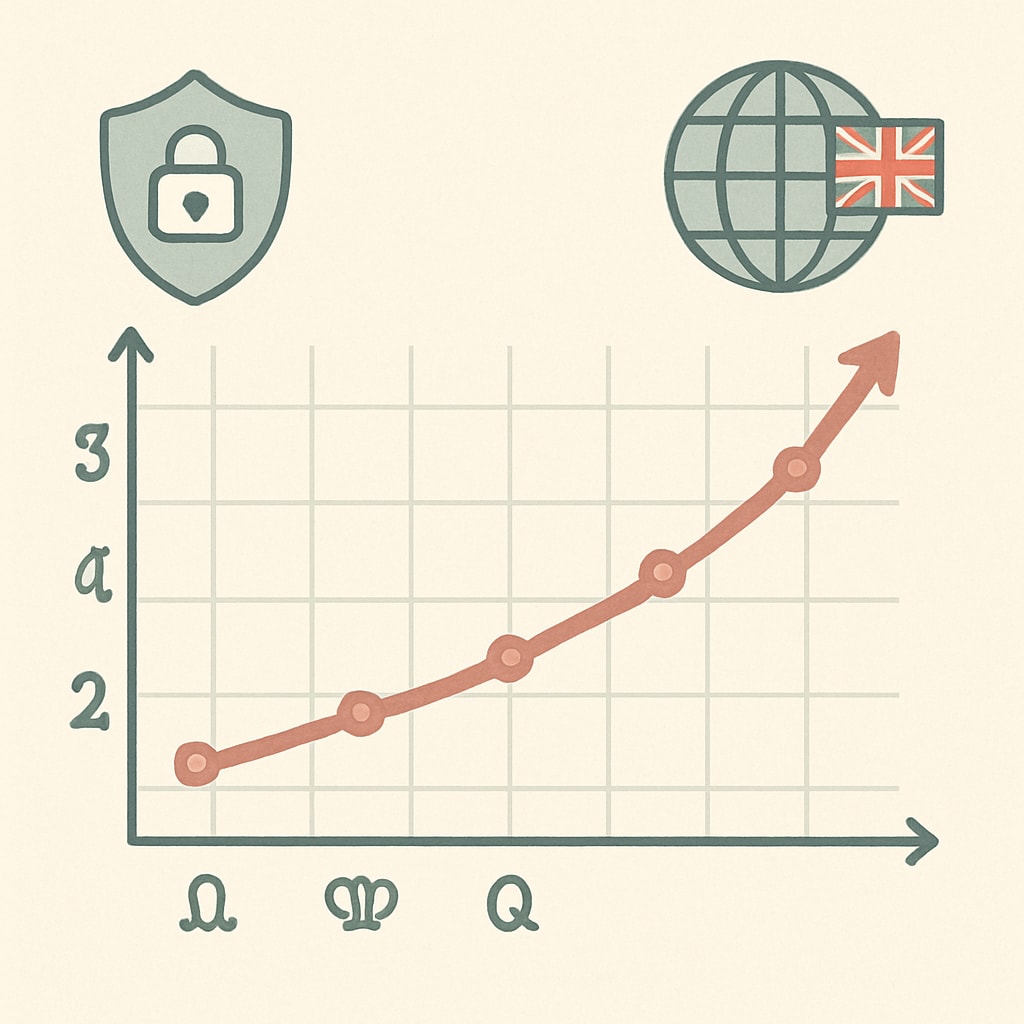The introduction of the UK’s age verification law for accessing adult content has sparked widespread debate and had an unintended consequence: a surge in VPN (Virtual Private Network) usage. This legislation, aimed at restricting access to adult websites for those under 18, has raised privacy concerns among users. Consequently, many individuals have turned to VPNs to maintain anonymity and bypass potential limitations. This article explores the implications of the law and its influence on VPN adoption.
Understanding the UK’s Age Verification Law
The UK government introduced the age verification law to prevent minors from accessing adult content online. Under the law, websites hosting adult material are required to implement strict measures to verify that users are over 18, such as credit card checks, government-issued IDs, or third-party verification systems. Failure to comply could result in fines or even the blocking of these websites within the UK.
While the legislation’s intention is to protect children, critics argue that it raises serious privacy concerns. Users must share sensitive personal information with third-party operators, potentially leaving them vulnerable to data breaches and misuse. For many, the solution to this is simple: use a VPN.

How VPN Usage Has Skyrocketed
VPNs, which encrypt internet traffic and mask a user’s IP address, have become increasingly popular in the wake of the age verification law. By routing their connection through servers in other countries, users can bypass geographical restrictions and avoid sharing personal data during the age verification process. This has made VPNs an attractive option for those prioritizing privacy and unrestricted access to the internet.
Several VPN providers have reported a sharp increase in downloads and subscriptions from UK users since discussions around the law began. For instance, NordVPN and ExpressVPN, two leading providers, have noted a significant uptick in demand from individuals seeking secure and private browsing solutions.
Reasons Behind the Rise in VPN Adoption
- Privacy Protection: VPNs safeguard user data by encrypting their online activities, reducing the risk of data leaks.
- Bypassing Restrictions: Users can access blocked content by connecting to servers in countries without such laws.
- Cost-Effectiveness: Many VPN services are affordable and offer flexible subscription plans.

Potential Downsides of Increased VPN Usage
While VPNs offer numerous benefits, their increased use raises some concerns. For one, not all VPNs are created equal—some free options may sell user data or provide inadequate encryption. Additionally, widespread VPN usage may undermine the effectiveness of the age verification law, as it becomes harder for authorities to enforce restrictions.
Moreover, the reliance on VPNs highlights a broader issue: the tension between privacy and regulation in the digital age. Policymakers must find a balance between protecting vulnerable groups and respecting individual freedoms.
The Future of Age Verification and Internet Privacy
The UK’s age verification law has brought the intersection of online privacy and regulation to the forefront. As VPN usage grows, it is clear that users are unwilling to sacrifice their privacy for compliance. This trend underscores the need for governments to adopt more privacy-conscious approaches when crafting digital policies. For example, implementing systems that minimize data collection or exploring alternative verification methods could help address public concerns.
In conclusion, while the age verification law aims to safeguard minors, it has inadvertently driven VPN adoption among UK users. As debates around privacy, regulation, and internet freedom continue, the outcomes of this legislation may serve as a case study for other nations grappling with similar challenges.
Readability guidance: This article uses concise paragraphs and clear headings to improve accessibility. Lists are included to summarize key points, and transitions ensure smooth reading. The balance between active and passive voice is maintained to enhance engagement.


